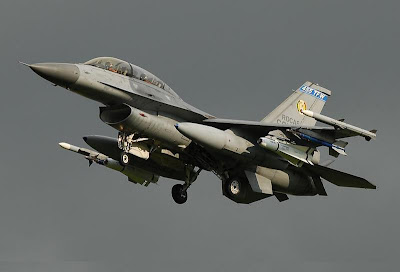
Taiwan Arms Sale: Why Now?
This announcement from the U.S. is nothing more than an empty threat. During his visit to China, Obama agreed to the terms in the “U.S.-China Joint Statement.” Therein, the U.S. reiterated its commitment to a one-China policy. The Agreement states that, “The two sides agreed that respecting each other’s core interests is extremely important to ensure steady progress in U.S.-China relations.” The public knows full well that the Taiwan issue, which is related to China’s national unification and territory within China’s boundaries, is a domestic issue. As such, the issue is central to China’s interests.
In considering renewed arms sales to Taiwan, the U.S. risks global condemnation for breaking its promises. Right after his visit to China and just before the conclusion of his first year in office – Obama chooses this moment to discuss arms sales to Taiwan? Why now?
Of course, the decision to bring up weapons sales to Taiwan was not made in a hurry. Early on, before Obama came to China or possibly during his visit, the U.S. was already mulling over the idea. Arms sales to Taiwan didn’t come up during Obama’s visit to China; this, too, was part of the plan. Suppose that he had broached the subject before his visit and incited the anger of the Chinese people. He would have been given the cold shoulder in China.
This author maintains that the timing of the arms sales discussion is the result of a clever four-point strategy. First, the U.S. hopes that mending relations with Taiwan now, after Obama has ensured the security of U.S.-China relations, will not spark a big reaction from China. The U.S. government’s interest is in maintaining the status quo in the Taiwan Strait. Back in 1979, the Carter administration passed the Taiwan Relations Act, committing the U.S. to involvement in the Taiwan Strait. Since then, the U.S. has tried to strike a balance between China and Taiwan, with the objective of keeping the status quo. Thus, the U.S., after giving China a warm hug, did not forget to blow Taiwan a kiss. Establishing good U.S.-China relations is a long and slow process. The U.S. knows that China will cherish this opportunity and will not go to war over a single weapons sale.
Second, the U.S. wants to finish up with the Taiwan problem before the end of the year, in order to prevent it from dragging into next year or even into Chairman Hu’s visit to the U.S. Although there is lingering friction between the U.S. and China, the two nations are currently most focused on their mutual interests. As a flourishing superpower, China is like a cake for Western countries over which to drool. The U.S. government knows full well that those who want a piece of the cake must maintain good relations with China. From the current list of weapons under consideration for the sale, it looks as though Taiwan will not obtain the long-coveted F-16C/D fighter jets. This indicates that the U.S. is wary of infuriating China. Americans know, too, that a new year is an opportunity for a fresh start. They must put this business behind them before the end of the year so that it won’t influence what happens next year.
Third, the U.S. government sees Taiwan as its trump card that it can play when it wants to put pressure on China or force China to give something up. Presently, the U.S. needs China’s cooperation on many international problems, including the wars in Afghanistan and Iraq, nuclear build-up in Iran and North Korea and global warming. Selling weapons to Taiwan and interfering with China’s fundamental interests is an important counterweight. The U.S. hopes to use this counterweight to compel China to yield a little on some important international issues. It is still unclear, however, what type of weapons will be sold and when the U.S. will sell them. This uncertainty is an indication that the U.S. is testing the waters to see how effective this kind of pressure can be. Washington is testing Beijing's limits, using this arms sale as its guide. The U.S. is exercising caution, though, because it knows that selling weapons is a double-edged sword; it can certainly injure others, but it can also turn against itself.
Fourth, because of recent improvements in cross-Strait relations, the U.S. believes that selling arms to Taiwan will not bring catastrophe to the Taiwan Strait. The U.S.'s most fundamental interest in the Taiwan Strait is maintaining the status quo. Since the Chinese Nationalist Party came to power, cross-Strait relations have improved significantly. Politically, Taiwanese independence is not the dramatically contentious issue it once was. Economically, China has become Taiwan’s biggest trading partner. Culturally, the establishment of direct post, airline and trade links has enabled cultural exchange. Given these changes in cross-Strait relations, the U.S. has assumed that China will not jeopardize the peace process already underway by reacting strongly to a weapons sale.
In conclusion, the timing of this proposed arms sale to Taiwan was a premeditated element in a long-term plan. It’s a “wait and see” test for China. The Chinese government is likely to take a cool and cautious stance on this issue, but pursuing a policy that seeks to keep the peace does not signify its softness or vulnerability to manipulation. As U.S.-China relations continue to improve, selling arms to Taiwan may be threatening, but it will not necessarily profit the U.S. The U.S. should consider the consequences of its actions carefully.
